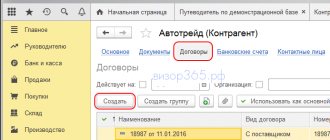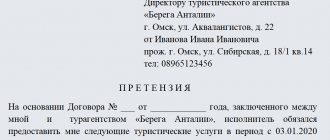Free legal consultation!
Lending money between citizens who have family or friendly ties is a common phenomenon. Therefore, few people spend time drawing up documents confirming the fact of transfer of funds.
When problems arise, people begin to wonder how to repay the debt without a receipt or witnesses. From a legal perspective, the matter can be complex.
How to correctly formalize the transfer of money in debt?
There are several options for formalizing debt relations.
- loan agreement
- receipt
- oral agreement
Loan agreement
Please note that a loan agreement is considered the most correct and legally correct option for formalizing debt relations.
If an amount is transferred in debt that is 10 times more than the base value (as of July 1, 2021, the base value is 21 rubles), it is necessary to use a written form of the agreement. This is a simple written form of a loan agreement. There is no need to visit a notary.
The parties to the agreement are the lender and the borrower. The agreement is signed by the parties. A copy of it is kept by each of the parties. The contract is considered concluded at the moment of transfer of funds.
The contract is of a paid nature. This is expressed in the right of the lender to receive interest on the transferred amount. The amount of interest may be specified in the agreement or determined by the refinancing rate of the National Bank of the Republic of Belarus (as of July 1, 2021, the refinancing rate is 20%). For clarity, let's give an example. Suppose you are owed five hundred rubles back on August 1, but the person is overdue for the refund until August 20, i.e. was 20 days past due. If interest is equated to the refinancing rate, the following mathematical formula comes out: 500 x 0.2 / 365 x 20 = 5.48 rubles, where 500 is the amount of debt, 0.2 is the 20% refinancing rate, 365 is the number of days in a year, 20 - period of delay. Thus, a kind of interest penalty is 5.48 rubles, and the total amount that the borrower must return to you is 505.48 rubles. Please note that an additional amount can be obtained without additional documents.
When independently determining percentages, it is worth remembering the principle of proportionality. If you lend a thousand rubles, and the amount of interest for a delay of 20 days is five hundred rubles or more, the judge will be forced to reject your claims or not satisfy them in full.
The parties can also indicate in the agreement a method of paying interest that is convenient for them: periodic payments or one-time payments, deadlines, and the procedure for transferring money. If any condition is not specified in the contract, then the norms of the current legislation of the Republic of Belarus apply.
Example of a contract
MONEY LOAN AGREEMENT (BETWEEN INDIVIDUALS) “___” ____________ _____ ______________ ____________________________________________________, hereinafter referred to as (Full Name) “Lender” and _______________________________________, (F. I. O.) hereinafter referred to as “Borrower” ", have concluded this agreement as follows: 1. SUBJECT OF THE AGREEMENT 1.1 The Lender transfers to the Borrower the ownership of money in the amount of _______________ (_________________________________________________) (amount) (amount in words) rubles, and the Borrower undertakes to return the same amount of money to the Lender by "____" ______________ _____ g. 1.2. To confirm what was received, the Borrower gives the Lender a receipt. 1.3. The loan is provided at interest. Interest is paid in the amount of ____ percent of the loan amount. The frequency of interest payments is ______________________. 1.4. The loan is considered repaid at the moment of transfer to the Lender of the entire amount of money specified in clause 1.1 of this Agreement. 2. RIGHTS AND OBLIGATIONS OF THE PARTIES 2.1. The Lender has the right to demand from the Borrower early repayment of the loan amount and payment of interest due in the event of non-payment or late payment of interest. 2.2. The borrower undertakes to repay the amount received by “____” ____________ _____. The borrower has the right (not the right) to return the amount received before the expiration of this period. 3. RESPONSIBILITY 3.1. In case of failure to repay the loan on time, the Borrower shall pay the Lender a penalty in the amount of ___ percent of the loan amount for each day of delay until the loan amount is fully repaid. Payment of penalties does not relieve the Borrower from paying interest. 3.2. In case of failure to pay the interest due to the Lender on time, the Borrower shall pay the Lender a penalty in the amount of ___ percent of the loan amount for each day of delay until the full amount of interest due to the Lender is paid. 4. ENTRY INTO FORCE AND EFFECTIVENESS OF THE AGREEMENT 4.1. The Agreement comes into force from the moment the amount specified in clause 1.1 of this Agreement is transferred to the Borrower and is valid until the parties fulfill all obligations provided for in this Agreement. 5. ADDITIONAL CONDITIONS 5.1. In all other respects that are not provided for in this Agreement, the parties are guided by law. 5.2. Disputes between the parties under this Agreement are resolved pre-trial and in court. 5.3.__________________________________________________________________________________________________________. DETAILS AND SIGNATURES OF THE PARTIES LENDER BORROWER ___________________ ___________________ ___________________ ___________________ ___________________ ___________________ ___________________ ___________________ (signature) (signature)
Receipt
To record the fact of the loan, a receipt from the debtor is sufficient. It must be drawn up in person and signed by the person receiving the loan. It is recommended to draw up a receipt “by hand”, since in the event of a conflict situation this makes it easier to prove who exactly drew up the receipt. For this reason, we recommend that you refrain from using a form typed in a computer word processor or a downloaded form. Further in the article you can see an example form. However, ask the borrower to write the text on the sheet and sign it with his own hand.
For the legal security of the parties, it is recommended to include the following important conditions : the timing of the loan, the method and procedure for its return, the resolution of the issue in case of untimely repayment of the debt (in other words, interest). It is mandatory to indicate the passport details of the parties and the exact amount of funds transferred. It should be written in words (for example, “500 (five hundred Belarusian rubles in 2009 currency)”, i.e. after the denomination on July 1, 2016).
Witnesses may be present when drawing up a receipt and transferring money . If necessary, they can appear in court and confirm the fact of voluntary execution of the receipt. If time and circumstances permit, we recommend not to neglect this important feature. In case of non-repayment of funds, it will be much easier to obtain their return in court.
Regardless of the form in which the parties decide to formalize the debt relationship (loan agreement or receipt), they can contact a notary. By contacting a notary, the parties can be sure that the agreement or receipt is executed correctly, from a legal point of view. An important fact is that, on the basis of a notarial record, debt collection is carried out in an indisputable manner. The lender has the right, on the basis of a writ of execution, to recover money from the debtor without going to court. This greatly simplifies the process of returning funds.
Example of a receipt
Minsk, Republic of Belarus. 06/22/2016 I, the borrower - Ivanov Ivan Ivanovich, born 02/20/1980, passport MR No. 1234567, issued by the Oktyabrsky District Department of Internal Affairs of Minsk, registered at the address: Minsk, Ivanovskaya Street, building 1, received on June 22, 2021 from lender - Marina Ivanovna Marinina, born 04/12/1967, native of Minsk, passport MR No. 7654321, issued by the Partizansky District Department of Internal Affairs of Minsk, registered at the address: Minsk, Fabrichnaya Street, building 2 for a loan in the amount of 1000 (one thousand) US dollars. I undertake to return 1000 (one thousand) US dollars received under this receipt by July 22, 2021. The receipt was written by me personally, Ivan Ivanovich Ivanov. Borrower signature Ivanov Ivan Ivanovich
Oral agreement
Belarusian legislation allows you to transfer money as a loan without drawing up the appropriate document if the amount does not exceed ten basic units (as of July 1, 2021, this is 210 rubles). A verbal agreement is sufficient. It is worth remembering that in the event of a conflict, it will be quite difficult for the parties to prove the fact of the transfer of money and the conditions on which the debt was based. Especially in the absence of witnesses. However, if the amount is insignificant, this method is also acceptable and, by the way, is quite common among Belarusians. Remember an important rule: if you intend to lend an amount exceeding 10 basic units, do not be too lazy to issue a receipt or enter into a loan agreement. Moreover, examples of documents can be found in this article.
Is it possible to lend in foreign currency?
The legislation of the Republic of Belarus does not contain a prohibition on the transfer of funds in foreign currency as a loan. This situation is recorded in paragraph 3 of Article 760 of the Civil Code of the Republic of Belarus.
As usual, a debt in a foreign currency must be repaid in the same currency. By agreement between the parties, a different procedure is possible: the return can be made in national currency, but at the rate of the National Bank of Belarus in effect at the time of transfer of funds. In order to avoid misunderstandings, it is recommended to document all debt relations relating to foreign currency. It won't take much time and doesn't oblige you to anything.
How to properly process debt repayment?
In debt matters, it is not only the transfer of funds that is important, but also their return. Therefore, do not forget that in order to avoid misunderstandings, you should document the fact of repayment of the debt. Especially for the borrower. This will be direct confirmation that he returned the money to the lender on time and in full. The parties can independently choose the form of registration of debt repayment, since there are no clear recommendations in this regard in the legislation. Based on established practice, the borrower and lender make a free-form entry on the loan agreement or receipt stating that the debt has been repaid in full.
Contacting the police
Report to law enforcement that you have been scammed. Complete the application. Point out that the other party misled you, which is why you gave away your money. The police are opening a case under Article 159 of the Criminal Code. Checks whether fraud has actually been committed. And in this case, you will be required to provide evidence to repay the debt without a receipt from an individual.
Important! If the police refused to initiate a case, you have the right to file a complaint against an unreasonable refusal.
We warn you that cases are initiated in rare cases. Basically the police refuse. If a case has been opened, file a claim before the investigation is completed.
Why should you go to the police station? The internal affairs bodies determine whether the debtor is guilty. Once guilt has been established, it is easier for the debt collector to repay the debt through legal action.
What to do if the debt is not repaid?
If you lent money and did not receive it back within the agreed period, there are several options for subsequent actions:
— pre-trial settlement of the issue;
- refund of money through court.
The steps will differ depending on whether you entered into a loan agreement, wrote a receipt, or whether it was an oral agreement.
Claim for loan repayment without receipt
A claim for debt repayment is a formal demand from a creditor to a debtor to repay the debt. In addition, it is sent to notify the debtor of the readiness to move from words to deeds.
In order to subsequently use the claim as evidence of measures taken to voluntarily resolve the dispute, you should save information confirming the fact that the claim was served. The fact of delivery, depending on the method of transmitting the written demand, is confirmed by a mark of the debtor himself on a copy of the delivered claim or a postal notification of delivery.
The claim does not have a strictly defined form, but its content, at a minimum, must include:
- recipient details (full name, residential address);
- sender details;
- amount of debt;
- debt repayment period;
- date of transfer of money;
- method of transferring funds (cash, card, e-wallet, etc.);
- date of compilation and signature of the sender.
Filing a claim when collecting a debt is not mandatory when going to court, however, the fact of its existence is positively perceived by the courts, and a written refusal by the debtor can sometimes serve as evidence of the fact of lending money.
VIDEO with additional tips on filing a claim against a debtor
How to repay a debt pre-trial?
If the person who lent money wants to resolve the situation with debt repayment without going to court, he can try to do this in pre-trial procedure. Popularly, this method is called an “amicable” solution to the issue. As usual, the lender tries to talk to the debtor and explain that the funds must be returned and this moment is inevitable and overdue. It is worth mentioning that if the case goes to court, then payment of state duties, attorney fees and mandatory payment of interest on the loan will become the debtor’s responsibility. So, he will have to part with an amount significantly greater than what he borrowed. Often this argument works.
If an attempt to resolve a debt dispute out of court led to a conflict and it was not possible to reach an agreement, there is only one way out - to apply to the court to protect your rights. The only thing is, when sorting out relationships, you shouldn’t waste your nerves, much less be zealous. The Criminal Code of the Republic of Belarus has Article 384, according to which any conversation with a debtor in an unacceptable form can be regarded as coercion to fulfill obligations. Therefore, in case of unacceptable pressure, the person who gave the loan may be held criminally liable. You need to be careful with this and not go too far.
Debt collection without a receipt through the court
The most effective way to collect a debt without a receipt is to go to court. Failure to comply with the written form makes it impossible to refer to evidence of the occurrence of debt obligations, therefore, it is necessary to prepare everything that will help the case before the process.
Most often, the court accepts the following information as evidence of debt:
- correspondence . Correspondence on social networks, email or SMS may well confirm the existence of a debt. It must contain the amount of debt and the repayment period. It is better to have correspondence certified by a notary.
- audio or video recordings . The audio recording must have a text transcript. In the case of telephone conversations, confirmation of the ownership of the telephone number by the debtor will be required, as well as an expert opinion in case of a dispute about what exactly the communication took place with the debtor;
- other documents . This could be agreements on installment plans, deferment of debt, pledge of property, information about cashless transfers and any other information confirming the existence of debt.
The court makes a decision based on the totality of the evidence available in the case and its own inner conviction, therefore, the more information is provided to the court, the higher the likelihood of a positive decision. After the decision has entered into legal force and the debtor has not repaid the debt, a writ of execution should be obtained for subsequent submission to the bank, the debtor’s employer, or transfer to the bailiff service.
INTERESTING : you can invalidate a receipt, even its presence is not a 100% guarantee, read more at the link
Is it possible to contact debt collectors to repay a debt?
A person professionally engaged in debt collection is called a debt collector. They work in specialized collection agencies. Due to the fact that in Belarus the legislative framework in this industry has not been formed, such agencies are practically absent. However, some legal experts whose specialists help to repay the debt pre-trial. They operate within the framework of current legislation and do not violate the above article of the Criminal Code. They often explain in an accessible form the consequences of non-repayment of the debt, namely the payment of a significantly larger amount, taking into account interest, fees and attorney fees.
How to repay a debt through court if there is a receipt or a loan agreement?
If it was not possible to return the money pre-trial, you must contact the judicial authorities. An important point is the statute of limitations for debt repayment. It is defined at the legislative level and is 3 years from the date of transfer of funds.
In order for the judge to accept the claim for consideration, it is necessary to correctly prepare the documents and appeal. In order for the claim to be accepted, the following recommendations must be followed.
1. Before going to court, it is recommended to send a registered letter to the address of the debtor indicated in the receipt. In the text of the letter, you indicate the amount of the debt, the period when the funds should have been returned and inform that if the money is not returned within 1-2 weeks, you plan to go to court. This action is not legally binding, but during the trial it can serve as an additional and compelling argument that you tried in every possible way to establish a dialogue with the debtor pre-trial and did everything in your power.
2. Next, you need to make a photocopy of the receipt in triplicate. One is necessary for the court, the second will be sent to the borrower, and the third will remain a reserve. You will also need a photocopy of your passport.
3. The statement of claim will be considered by the court, which is territorially related to the place where the debtor is registered. In order for the court to accept the application for consideration, the claim must be drawn up taking into account all the requirements and rules.
Example of a statement of claim
In the ____ district (city) court of the ______________________ region Plaintiff: _______________________ (full name, year of birth, address) Defendant: ____________________ (full name, address) Cost of the claim: ____________________ STATEMENT OF CLAIM for debt collection under the loan agreement _______________ defendant ________________________________________________ (day, month, year) (full name) borrowed ______________________________ rubles (amount in figures and words) from me on a receipt and undertook to return the money to me _______________. term (day, month, year) the defendant(s) did not pay the debt. He did not respond to my offer to voluntarily pay off the debt (refused). In accordance with Art. 760, 762 and 763 of the Civil Code of the Republic of Belarus and guided by Art. 6 of the Civil Procedure Code of the Republic of Belarus, I ASK: 1. To collect from the defendant(s) ______________________ in my favor the debt under (full name) loan agreement in the amount of _____________________________ rubles and legal expenses (amount in figures and words) _____________________________ rubles. (amount in figures and words) 2. To secure the claim, seize the property of the defendant(s), located at ____________________________________. Applications:
- Written evidence of the defendant’s recognition of the debt (receipt, letter, note, etc.).
- Receipt for payment of state duty.
- A copy of the statement of claim for the defendant.
Date Signature
4. Before filing a claim in court, you must pay the state fee.
5. Next, documents are generated: a copy of the receipt, a copy of the letter to the debtor, a copy of the passport and a receipt for payment of the state duty are attached to the statement of claim.
6. The documents are transferred to the court office, and the case is prepared for consideration. As a rule, the period for consideration of claims for debt collection is 1 month.
7. You will be summoned to court. It is best not to ignore the legal process as the judge may need more information about the case. If the debtor does not appear in court, the judge will be able to consider the case in his absence.
8. After the trial is completed and a decision is made in your favor, you will be given a writ of execution. You will also be given a copy of the court decision.
9. The writ of execution must be handed over to the bailiffs and the nuances associated with further actions to repay the debt must be discussed.
You can do all the steps yourself, but if you want to be sure that your claim is drawn up correctly or your interests are represented in court, you should contact professional lawyers.
Example of a court decision on a claim
DECISION IN THE NAME OF THE REPUBLIC OF BELARUS June 01, 2021 The court, consisting of: the presiding judge with the secretary of the court session, having considered in open court a civil case on the claim of Ivan Ivanovich Ivanov against Petr Petrovich Petrov for the collection of debt and interest for the use of other people's funds , court U STA N O VIL: III filed a PPP claim in court, in which he asks to recover from the defendant in his favor: - 6,000,000 rubles. on account of the debt under the loan agreement under the receipt dated 02/01/2016 - 98,600 rubles - interest for the use of other people's funds. Plaintiff IIII did not appear in court, by proxy his interests are represented by SSS, which supported the claims made by the PPP at the court hearing, explained to the court that on 02/01/2016 IIII lent the PPP funds in the amount of 6,000,000 rubles, about which he drew up a receipt with his own hand and undertook to repay the specified amount on 03/01/2016. By the specified time, the defendant had not fulfilled his obligations, and to date has not started repaying the debt. In accordance with civil law, obligations must be fulfilled properly, in accordance with the terms of the contract and the requirements of the law. On 04/01/2016, a letter of claim was sent to the defendant with a request to repay the debt by 04/25/2016. Interest is payable for the use of other people's funds. Requests the court to recover from the PPP in favor of III the amount of debt with interest in the amount of 6,098,600 rubles. The defendant PPP admitted III's claim at the court hearing and explained to the court that on 02/01/2016 he actually received 6,000,000 rubles from III. in debt, undertook to repay on 03/01/2016, for which he drew up a receipt in his own hand. He admits that the receipt was drawn up in the presence of the plaintiff, in a calm atmosphere, no pressure was put on him, the signature on the receipt is his. By the specified time, he was unable to repay the debt, as he was experiencing financial difficulties. Currently, he is ready to make a settlement with III and is ready to return the principal amount of the debt to him - 6,000,000 rubles. and interest on the use of other people's funds. I completely agree with the calculation. The court, having heard the representative of the plaintiff and the defendant, and having examined the materials of the case, finds the claims of III to be satisfied. An authentic receipt dated 02/01/2016 was presented to the court, according to the terms of which, the PPP borrowed 6,000,000 rubles from IIII, and undertook to repay it by 03/01/2016. The defendant does not deny the fact of drawing up the receipt; the amount of the debt is signed by the PPP, He confirmed the authenticity of this signature in his explanation. At the court hearing, the defendant agreed with the PPP’s claim, did not deny the fact that he had received funds from the III, and was ready to repay the debt. In accordance with Article 760 of the Civil Code of the Republic of Belarus, under a loan agreement, one party (the lender) transfers into the ownership of the other party (borrower) money or other things determined by generic characteristics, and the borrower undertakes to return to the lender the same amount of money (loan amount) or an equal amount other things he received of the same kind and quality. The loan agreement is considered concluded from the moment the money or other things are transferred. In accordance with Article 761 of the Civil Code of the Republic of Belarus, a loan agreement between citizens must be concluded in writing. In confirmation of the loan agreement and its terms, a receipt from the borrower or another document certifying the transfer by the lender of a certain amount of money or a certain number of things to him may be presented. The parties entered into a binding loan agreement that complies with the requirements of Articles 760-761 of the Civil Code of the Republic of Belarus. During the trial, the PPP did not present evidence of the lack of money in the agreement, nor did it provide evidence that the disputed loan agreement was concluded under the influence of deception, violence and threats. In accordance with Article 297 of the Civil Procedure Code of the Republic of Belarus, the court makes a decision on the claims made by the plaintiff and bases it on the evidence presented by the parties. When analyzing the evidence contained in the testimony of the parties and written evidence, the court gives preference to the information that is set out in the plaintiff’s explanations and confirmed by the defendant. Based on Article 763 of the Civil Code of the Republic of Belarus, the borrower is obliged to return to the lender the received loan amount within the period and in the manner prescribed by the loan agreement. As the court found, the defendant did not fulfill his obligation to repay the debt, which was not disputed by him during the trial. In accordance with Article 290 of the Civil Code of the Republic of Belarus, obligations must be fulfilled properly in accordance with the terms of the obligation and the requirements of the law and other legal acts. In accordance with Articles 291, 295, 366. of the Civil Code of the Republic of Belarus, for the use of someone else’s funds due to their unlawful retention, evasion of their return, other delay in their payment or unjustified receipt or savings at the expense of another person, interest on the amount of these funds is subject to payment , the amount of interest is determined by the existing rate at the place of residence of the creditor, and if the creditor is a legal entity, at its location, the discount rate of bank interest on the day of fulfillment of the monetary obligation or its corresponding part. When collecting a debt in court, the court may satisfy the creditor's claims based on the discount rate of bank interest on the day the claim was filed or on the day the decision was made. These rules apply unless a different interest rate is established by law or agreement. The refinancing rate as of the day of filing the claim is 20%, as evidenced by a certificate from the National Bank. When determining the amount of debt with interest, the Court proceeds from the following. Taking into account the submitted receipt, the amount of debt is 6,000,000 rubles. The date of return of the specified amount is 03/01/2016. Thus, the defendant must pay interest on the debt amount in the amount of 6,000,000 rubles. x 20% / 365 days x 30 (days of delay) = 98,600 rub. The calculation of interest by the defendant is not disputed. Based on the aforesaid and guided by Article. ... of the Civil Code of the Republic of Belarus, court DECISION: To recover from PPP, born on December 19, 1976, a native of Minsk, in favor of III, the amount of debt under the loan agreement in the amount of 6,000,000 (six million) rubles. and interest on the use of other people's funds in the amount of 98,600 (ninety-eight thousand six hundred) rubles, a total of 6,098,600 (six million ninety-eight thousand six hundred) rubles. To recover RUB 3,150,000 from the PPP in favor of III. – costs of paying the state fee when filing a claim with the Court.
Application to the police for repayment of debt under a loan agreement without a receipt
Deception or breach of trust is a crime under Art. 159 of the Criminal Code of the Russian Federation. The fact of fraud will be verified by the police if there is a corresponding statement from the victim. The statement describes all the circumstances of the transfer of money, the amount of the debt, the debtor’s data, it is permissible to refer to witnesses and other data that indirectly confirm the occurrence of the debt.
At the conclusion of the application, a request is made to check the described circumstances for evidence of a crime. Sometimes the debtor is not ready to talk with the police and may repay the debt in order to resolve the situation.
If the debtor refuses to acknowledge the debt, he will be summoned for questioning to establish the circumstances of the case. In the current situation, the crime is theft of money, but if during interrogation the suspect states that he took the money for a while, not for the purpose of theft, then a decision will be made to refuse to initiate a criminal case. On the one hand, this resolution will not return the money to the creditor, but, on the other hand, it can be used as evidence of the debt itself when filing a claim in civil proceedings.
Is it possible to go to court if there is no receipt or agreement?
The media quite often cover stories like: I lent money “on my word of honor” without a receipt or agreement, and now I can’t get my money back. If you lend to a person and do not properly formalize your debt relationship, remember that if the debt is not repaid, it will be almost impossible to get the money back through the court.
If you lent an amount exceeding 210 rubles and did not comply with the simple written form of the agreement, the court will not take into account the testimony of witnesses. This norm is reflected in Article 163 of the Civil Procedure Code of Belarus. Witness testimony in this case does not reveal the completeness of the information and the fact of debt obligations. In this case, available photo and video materials, SMS or email correspondence with the borrower, confirming the fact of transfer of money on loan, may be taken into account.
Having at least some of the above evidence, you can file a complaint with the police to initiate a criminal case for fraud. The police officers will decide whether to approve the application or refuse it. Having received a refusal, the lender has the right to appeal it in court. In practice, there are cases when the refusal is justified by the lack of complete information about the amount of the debt, but the fact of the borrower’s guilt has been established. This can serve as strong evidence in court confirming the fact of the transfer of money in debt.
To be more confident in a successful outcome of the case in such a situation, it is recommended to seek the help of lawyers.
Evidence instead of a receipt
Follow Article 162 of the Civil Code. The law allows other evidence to be brought when a receipt was not drawn up.
3 proofs of fraud
- Messages to smartphone or email.
- Representations Made by Third Parties. The words of the victim's relatives are not taken into account.
Important! The words of witnesses are taken into account if the amount of debt does not exceed one thousand rubles.
- Dictaphone recording of negotiations.
The chances of repaying a debt without a receipt from an individual will increase if you explain the situation to a lawyer. The lawyer will competently draw up the evidence base and achieve the initiation of a case of fraud.
If the police refused to start proceedings in the case, ask for a certificate of refusal. Further collection of debts from individuals without a receipt will be carried out in court.
What needs to be done after receiving a court decision and writ of execution?
After the trial has been completed in favor of the borrower, the person receives a copy of the court decision. The decision is not the basis for enforcement of debt repayment. It serves as the basis for obtaining a writ of execution.
After receiving the writ of execution, the stage of enforcement proceedings begins. It is necessary to write an application to initiate enforcement proceedings and, with the received sheet, contact the enforcement department. A bailiff will be assigned responsibility for fulfilling the court's requirements. It is recommended to find out his details and contact phone number for communication.
What actions do bailiffs take to collect debt?
To collect a debt, a bailiff can act in various ways. As a rule, he receives information about the debtor’s property and funds and seizes these objects. In some cases, the bailiff may resort to more effective and radical measures and restrict the debtor’s rights to leave the country or deprive him of the right to drive a vehicle.
The bailiff has the right to apply several measures of influence on the borrower .
According to the current legislation of the Republic of Belarus, the bailiff has 2 months to put into effect the instructions on the writ of execution.
If the debtor has funds in a bank account, real estate or other property, the bailiff has the right to sell it to return the debt to the borrower. So, an auction may be scheduled, and items may be transferred to a consignment store. It is also allowed to sell one's own property by the debtor himself under the control of a bailiff. Please note that the claimant has the right to be present when the bailiff carries out a specific action to sell the debtor’s property.
The nuances of returning debt without a receipt
A receipt must be drawn up if you are transferring an amount of 10 minimum wages. The judge accepts the receipt as evidence. But in life, trusting relationships are often established between acquaintances and relatives. A receipt for the transfer of money is not always prepared. The law has determined that it is possible to obtain a refund of funds without a receipt.
3 options on how to achieve debt repayment:
- Resolve the issue with the borrower peacefully. Try to negotiate with the debtor. Submit a claim. Indicate that you will contact the court and law enforcement agencies if the borrower does not repay the debt.
- Contact the police. She will hold the debtor accountable.
- Submit the claim to the court district. When the loan amount does not exceed fifty thousand rubles, the application can be sent to the magistrate.
What to do if bailiffs are inactive?
If the writ of execution was handed over to the bailiff, and no action was taken to collect the debt, or these actions were unproductive, it is worth knowing the procedure for influencing the bailiff.
The main measure of influence on the activities of an ineffective and ineffective bailiff is a complaint in the order of accountability. The complaint is submitted to the senior bailiff.
The complaint must indicate:
— Full name of the bailiff who ignores the fulfillment of his duties under the writ of execution;
— Full name of the person filing the complaint, address and contact telephone number;
- the essence of the complaint (what exactly the bailiff does not do);
- requirements of the person filing the complaint.
If the complaint has been considered, and the performance of the bailiff’s work leaves much to be desired, you can file a complaint with the court. The complaint can be submitted in person or through the office.
Important advice. Taking into account the emerging practice, in order for the bailiff to work effectively from the very beginning, the claimant must demonstrate the seriousness of his intentions. If the executor sees that you are not indifferent to the debt, you have an active position, the matter will be better to argue. Among other things, be in constant contact with the appointed bailiff, and do not bother him about trifles: inquire in a timely manner about the results of enforcement proceedings, collection of funds from the debtor and the sale of his property.
Is it possible to collect a debt from a debtor if he has no property and is unemployed?
It is important to remember that if a debtor who lacks any property intends not to repay the debt, then it will be extremely difficult to collect the required amount. In fact, a person can borrow, dispose of the money, not return the amount borrowed and remain unpunished. For this simple scheme, the debtor should not have personal property. If there is no property, then there is nothing to recover from.
When the bailiff visits the debtor, he will only make sure that the person lives without anything, in poverty. Accordingly, nothing can be recovered from him. In this case, you should also not count on penalties. Whatever the amount, bailiffs are powerless in such a situation.








